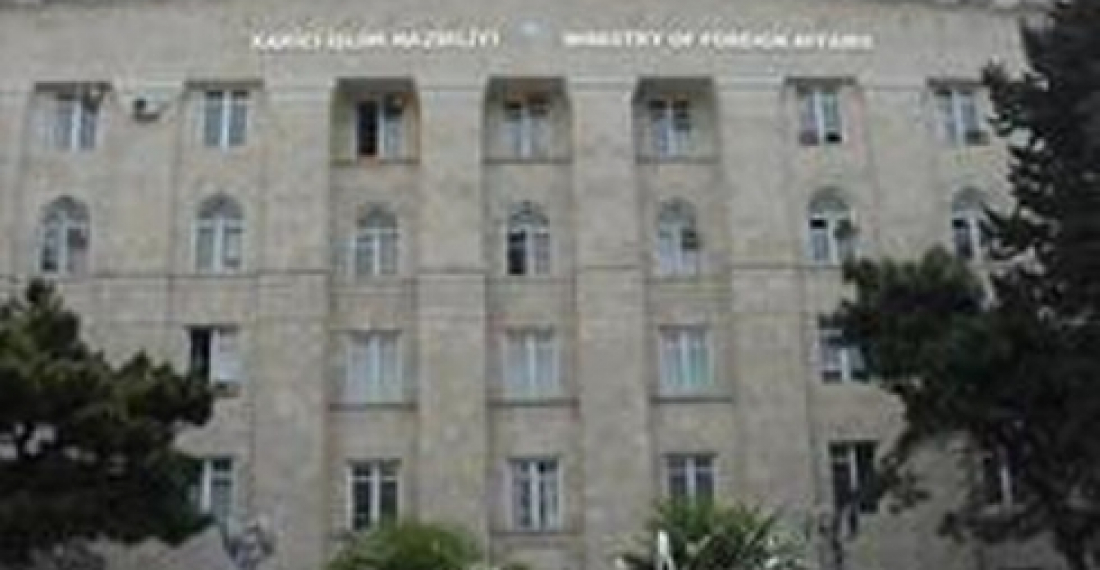The Russian Ambassador to Azerbaijan, Vladimir Dorokhin, was today summonded to the Azerbaijani Foreign Ministry where he was handed a note of protest on behalf of the government by Deputy Foreign Minister Mahmud Mammad-Guliyev.
The Foreign Ministry's press service told the Azerbaijan Press Agency (APA) that at the meeting Deputy Minister Mahmud Mammad-Guliyev expressed concerns and protest of Azerbaijani side over the publication of an online article entitled "Nagorno Karabakh is used to being unrecognized'" on the official website of Ria Novosti, Russian State News Agency on the eve of the anniversary of Khojaly Genocide.
The Deputy Minister brought to Ambassador's attention the fact that recently there has been an increase in the number of articles in the Russian media which are directed against Azerbaijan. He underlined that the publication of the article on the website of the Russian State News Agency is particularly regretful and overshadows the activity of the Russian Federation towards the resolution of the conflict between Armenia and Azerbaijan, as Co-Chair of the OSCE Minsk Group.
The Deputy Minister also noted that the article does not reflect the reality, includes calls for encouraging separatism and extremism and disrespects the principle of territorial integrity, fundamental principle of international law.
Referring to the bilateral agreement on "Friendship, cooperation and mutual security" signed between the Republic of Azerbaijan and the Russian Federation on 3 July 1997, the Azerbaijani Deputy Foreign Minister reminded the Ambassador that Article 5 of the said agreement says that both states condemn all forms of separatism and take the obligation not to support separatist movements directed against the sovereignty, independence and territorial integrity of the two states and to ban and prevent the establishment and activities of such organisations, groups and individuals in their territories. It was underlined that the provocative article published online does not fit with the spirit of friendship and cooperation between Azerbaijan and Russia and damages the long-established good neighborly relations in contradiction of the essence and articles of the aforesaid bilateral agreement.
Deputy Minister Mahmud Mammad-Guliyev presented a protest note to the Russian Ambassador and expressed hope that the issue will be closely examined and appropriate measures will be taken by the Russian Federation, according to APA
source: commonspace.eu with APA
photo: The Ministruy of Foreign Affairs building in Baku







